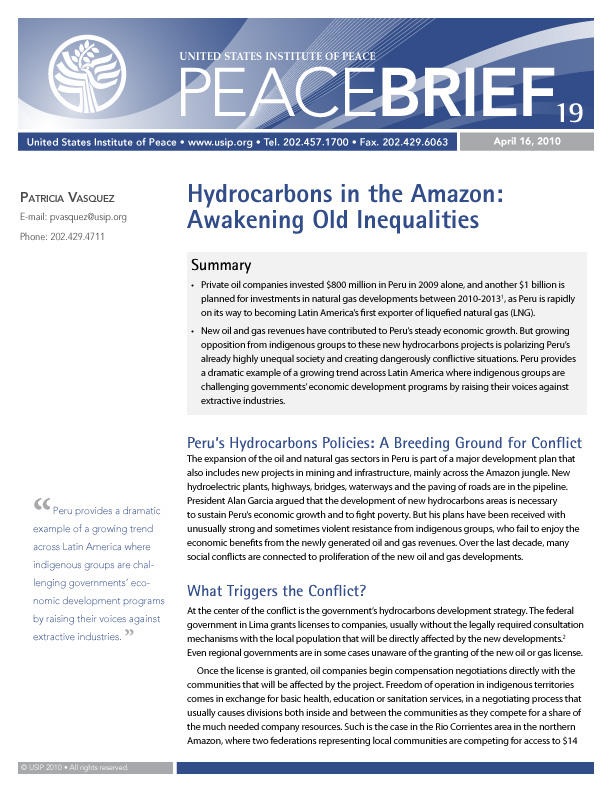Private oil companies invested $800 million in Peru in 2009 alone, and another $1 billion is planned for investments in natural gas developments between 2010-2013, as Peru is rapidly on its way to becoming Latin America’s first exporter of liquefied natural gas (LNG). New oil and gas revenues have contributed to Peru’s steady economic growth. But growing opposition from indigenous groups to these new hydrocarbons projects is polarizing Peru’s already highly unequal society and creating dangerously conflictive situations.

Summary
- Private oil companies invested $800 million in Peru in 2009 alone, and another $1 billion is planned for investments in natural gas developments between 2010-2013, as Peru is rapidly on its way to becoming Latin America’s first exporter of liquefied natural gas (LNG).
- New oil and gas revenues have contributed to Peru’s steady economic growth. But growing opposition from indigenous groups to these new hydrocarbons projects is polarizing Peru’s already highly unequal society and creating dangerously conflictive situations. Peru provides a dramatic example of a growing trend across Latin America where indigenous groups are challenging governments’ economic development programs by raising their voices against extractive industries.
About This Brief
Patricia I. Vasquez is a Jennings Randolph senior fellow at the U.S. Institute of Peace, where she is researching conflicts related to hydrocarbons developments in Peru, Ecuador, Colombia and Bolivia. This Peace Brief is the result of years of research, including several field trips and interviews on the ground. The author is working on a book and a documentary about this subject.